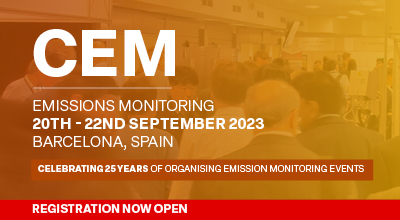| Abstract Title: | Mercury Speciation Measurements from Boiler to Stack |
| Presenter Name: | Mr Timothy Rodak |
| Co-authors: | Mr Volker Schmid Mr James Wright |
| Company/Organisation: | Clean Air Engineering |
| Country: | United States |
Abstract Information :
The effectiveness of air pollution control devices (APC) in removing mercury in flue gases from coal – fired power plants depends on the distribution of the different mercury species upstream of each control device. As a result, knowledge of the mercury speciation from combustion zone to stack is fundamental for the design, understanding and evaluation of mercury control strategies. Despite recent efforts, there is no validated sorbent trap method for quantitative measurement of speciated mercury emissions from coal – fired power plants in Europe. Instead, wet - chemical methods are still relied upon as reference methods for the speciation of mercury content in flue gases.
Sampling methods using sorbent traps have been used extensively over the past 20 years for the quantitative measurement of mercury in flue gases from combustion sources. One of those methods is the speciating Flue Gas Adsorbent Mercury Speciation (FAMS) method, which has gained widespread acceptance as the preferred alternative for mercury speciation due to its simplicity, sensitivity, and repeatability. However, FAMS and other sorbent trap methods were developed primarily for measurements made in the relatively clean, dry, and cool flue gas present downstream of air pollution control devices.
This presentation addresses the use of sorbent traps for speciated mercury measurements throughout the APC system of a coal-fired utility. Specific sampling approaches to accommodate testing at high temperatures, high dust loadings, and moisture-saturated gas streams will be discussed. Data will be presented for measurements made from points ranging from near the exit of the boiler to the outlet of a wet scrubber. Measurement quality objectives will be examined to assess the quality of the results.

